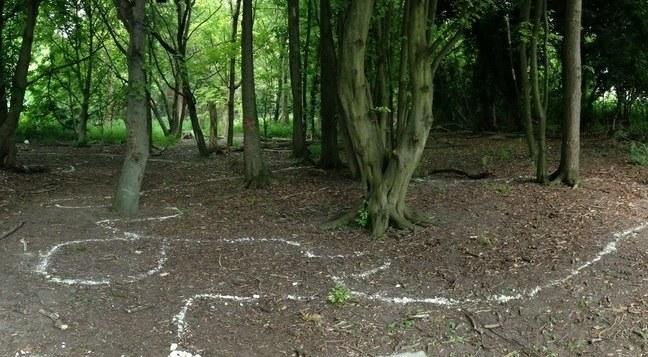
In the framework of the AHRC theme 'Care for the Future: Thinking Forward through the Past' exploring the relationship between past, present and future and investigating the significance of continuity and change.
Known as the 'Pathways Project' this work is a collaboration between the Division of Social Anthropology and the Faculty of Education at the University of Cambridge, the logo is designed with a mirrored letter 'p' to appear as two trees to represent the environment.
- How do people understand their environment to be changing over time, and how are these changes observed and reflected upon?
- Do people draw upon a knowledge of past environments when thinking about future environmental scenarios, including those associated with the changing climate?
- What connections do people make between environmental events effecting the local area where they live, and the experiences of people living in other localities elsewhere in the world?
Pathways to Understanding the Changing Climate is an interdisciplinary research project funded by the Arts and Humanities Research Council (AHRC), that brings together educationalists and social anthropologists with the aim of understanding how people narrate and respond to their ever changing local landscapes.
Using a range of innovative methodologies, the 'Pathways Project' traces the extent to which people connect their local environmental knowledge with global processes - from climate change, to habitat destruction.
Following the Stern Review's focus upon questions of intergenerational equity, a major focus for the project is how children learn about and make sense of environmental change. Members of our team are also investigating how people's working lives shape their engagement with ecological concerns - locally, nationally, and globally.
Our key activities and outputs include:
- The creation of a database of narratives and images exploring environmental pasts and futures in East Anglia, a region with a long history of landscape flux and, due to its flat and low-lying nature, a particular of climate change.
- Working with primary schools in different locations around the world, running a series of activities including walk-and-talk interviews, archaeological digs and much more, all designed to get children to reflect upon and express their own perceptions of the changing environment.
- An exhibition exploring how the environment changes over time, hosted by the Prickwillow Museum.
A further important part of our research agenda is to foster cross-cultural links between communities from different parts of the world with radically different ecologies. Drawing on existing networks in regions where the Division of Social Anthropology has strong working relationships - especially Alaska, Mexico and Mongolia - we aimed to understand whether communities make connections between environmental events that they perceive locally and events affecting localities elsewhere in the world.
By establishing links between schools and organisations in East Anglia with their counterparts elsewhere in the world, we not only explored how communities perceive environmental change in their own locality, but also how they receive and respond to the experience of change elsewhere in the world.
To find out more about our work, please contact Libby Peachey, at eaup2@cam.ac.uk.
